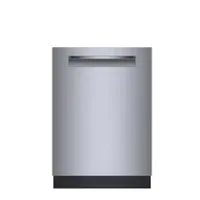Why are my dishes still dirty after running the dishwasher? Here’s what the appliance experts say, and how to fix it
Don't make these dishwasher mistakes
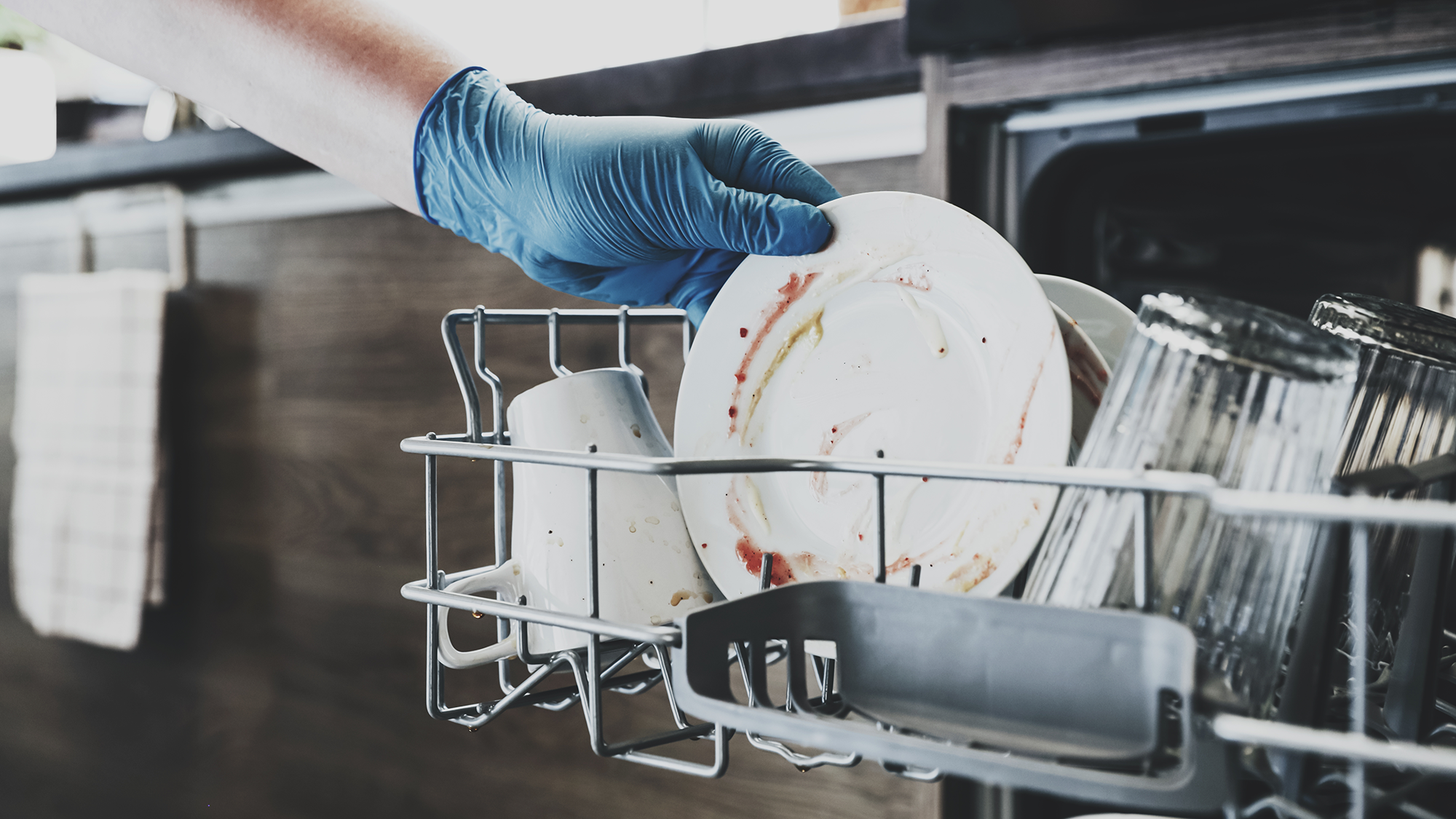
Here at Tom’s Guide our expert editors are committed to bringing you the best news, reviews and guides to help you stay informed and ahead of the curve!
You are now subscribed
Your newsletter sign-up was successful
Want to add more newsletters?

Daily (Mon-Sun)
Tom's Guide Daily
Sign up to get the latest updates on all of your favorite content! From cutting-edge tech news and the hottest streaming buzz to unbeatable deals on the best products and in-depth reviews, we’ve got you covered.

Weekly on Thursday
Tom's AI Guide
Be AI savvy with your weekly newsletter summing up all the biggest AI news you need to know. Plus, analysis from our AI editor and tips on how to use the latest AI tools!

Weekly on Friday
Tom's iGuide
Unlock the vast world of Apple news straight to your inbox. With coverage on everything from exciting product launches to essential software updates, this is your go-to source for the latest updates on all the best Apple content.

Weekly on Monday
Tom's Streaming Guide
Our weekly newsletter is expertly crafted to immerse you in the world of streaming. Stay updated on the latest releases and our top recommendations across your favorite streaming platforms.
Join the club
Get full access to premium articles, exclusive features and a growing list of member rewards.
If there's one appliance that has made my household chores a breeze, it has to be my dishwasher. And if you run a busy household, work from home or simply don’t want to get your hands dirty, having one of the best dishwashers can be a lifesaver in the kitchen.
However, it's slightly frustrating when I've spotted stubborn stains, or stuck-on food after a washing cycle. What's more, I'll need to rewash those plates, making it more costly in the long-term. I couldn't understand why, since the dishwasher tablet promised a "sparkling clean". So why are my dishes still dirty after being washed in a dishwasher?
I asked the appliance experts why my dishes are still dirty after a wash cycle. Here are the common reasons, and top tips to avoid this.
This Bosch dishwasher delivers across the board and is a favorite of Mike Prospero, our U.S. Editor-in-Chief. It's quiet to run, has a generous capacity and a third rack. Plus, this Bosch dishwasher is Energy Star certified, and you could claim a rebate from your local utility company.
1. Improper loading/overloading
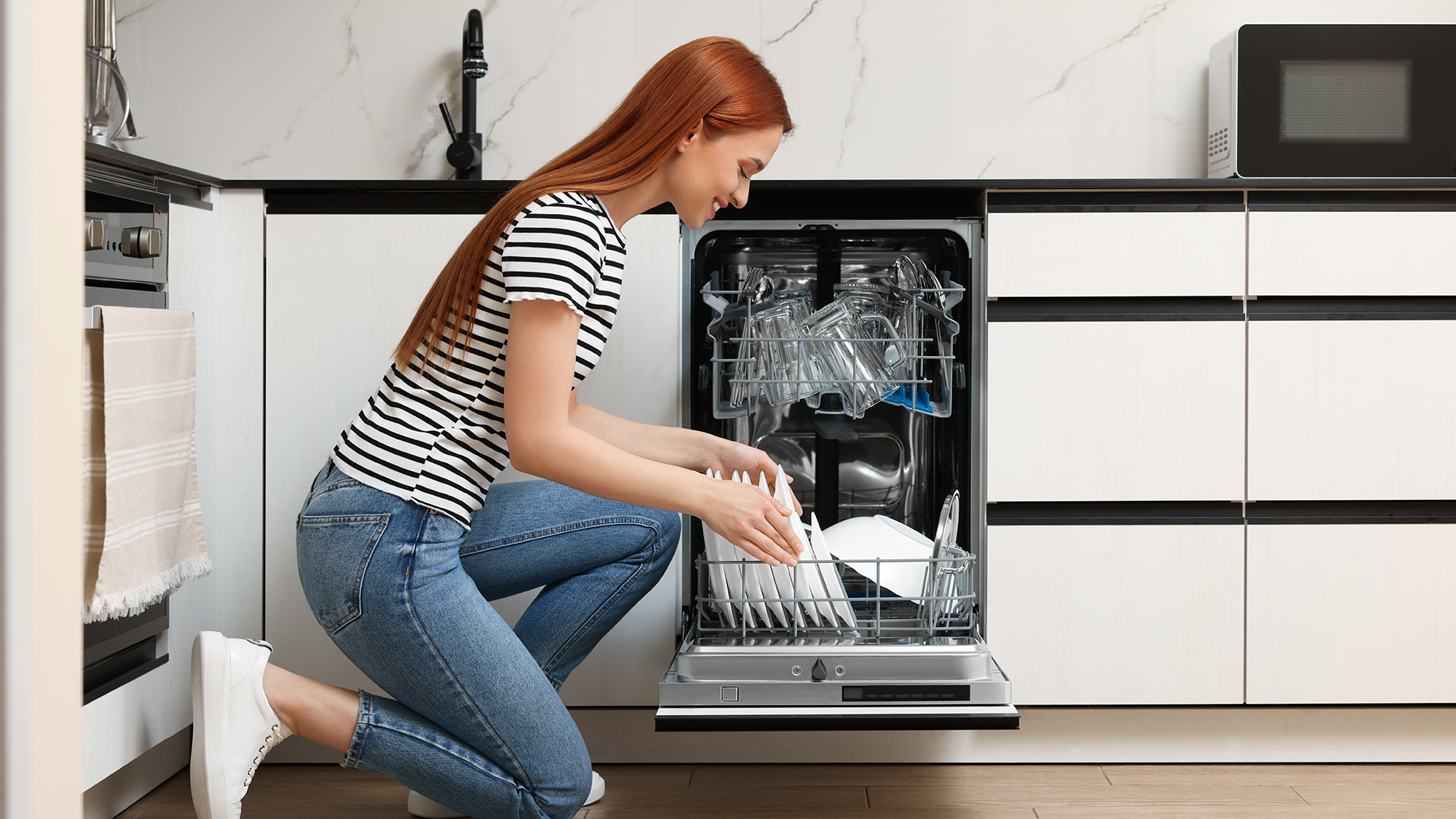
I’ve been guilty of trying to cram in as many items as I can into my dishwasher, to ensure it’s more energy- efficient, but this is a firm no-no.
“We are all looking to reduce the amount of energy we are using in our homes, but overloading your dishwasher can often result in needing another cycle,” states Ian Palmer-Smith, Appliance repair expert at Domestic & General.
“Putting too many large pots and pans in with all your regular dishes, glassware and cutlery can lead to overloading and sometimes even prevent the spray arms from working properly.
Similarly, make sure you load the dishwasher the right way by placing items in the proper racks, and not overlapping them so the water can’t clean them properly.
Get instant access to breaking news, the hottest reviews, great deals and helpful tips.
“When stacking the machine, ensure there is enough space between each item - items should not be touching one another. Try putting smaller items on the top rack and larger items on the bottom for best use of space.”
If you do need more capacity though, you can buy models with a ‘third rack’ in a dishwasher, which is essentially a sliding rack at the top of a dishwasher, designed to hold flatware, utensils, and measuring cups.
2. Clogged spray jets
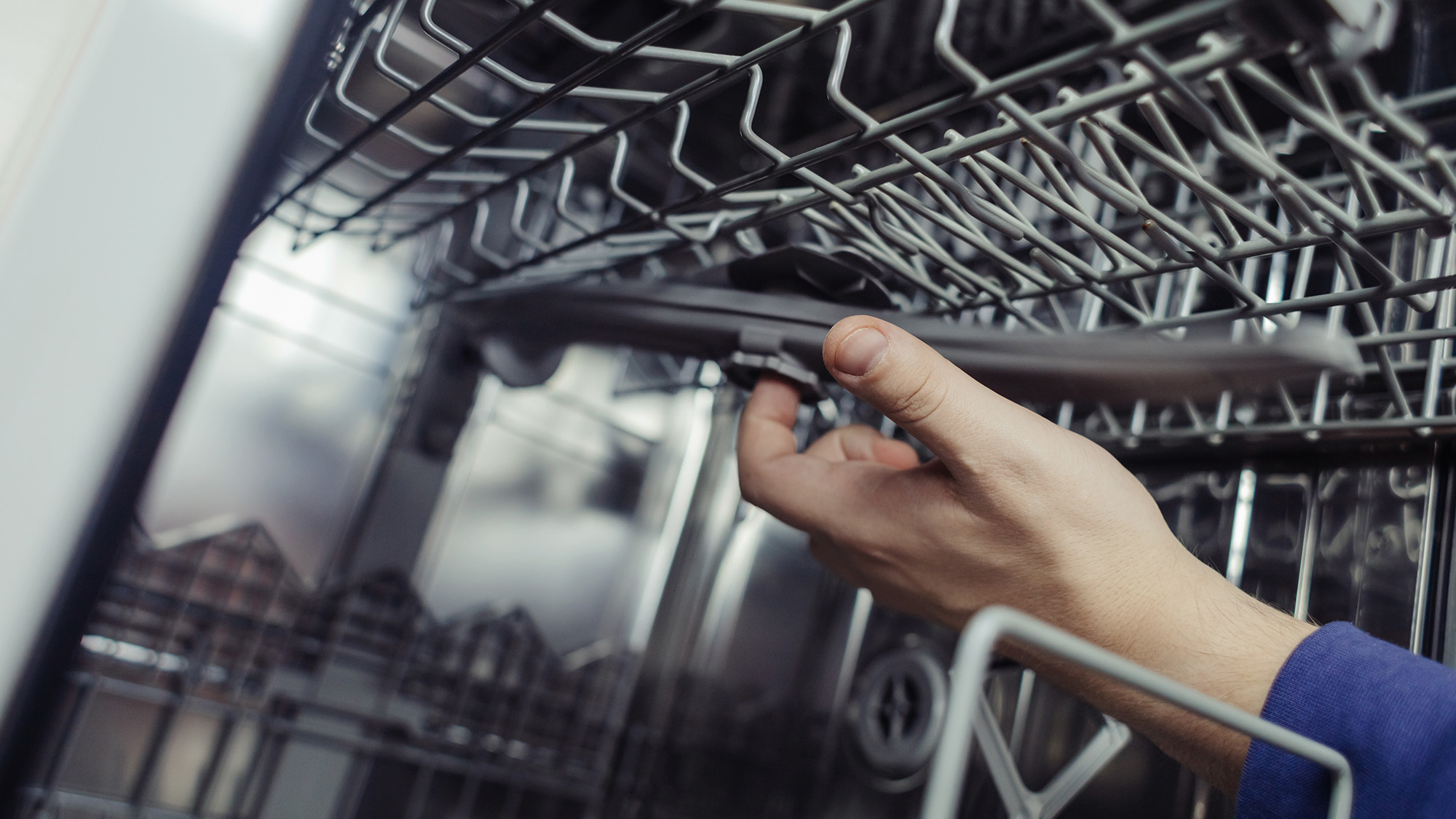
Another culprit for dirty dishes are clogged spray jets. “If your dishes aren’t coming out as clean as you’d like, there are a few things worth inspecting,” advises Shirley Hood, Appliance Expert at Abt Electronics.
“First, examine the spray jets; if they’re clogged, the water pressure won’t be strong enough to wash everything properly. Check the wash arm for any debris. To do this, remove the spray arms and rinse them under hot water in the sink. If you notice food particles or calcium build-up, use a toothpick to gently clear the spray jets.
"For more stubborn clogs, let the spray arms soak in a mixture of vinegar and water for about 30 minutes. This will help loosen and remove buildup. Keeping the spray arms clean will greatly improve your dishwasher’s cleaning performance.”
Also, check there are no obstructions in the way. "Make sure your dishwasher’s spray arms are not blocked by silverware or dishes, either when loading or during the cycle," adds Steve Schmahl, appliance expert at American Home Shield.
"Give them a spin before starting your unit to make sure they are not blocked and spin completely."
3. Clogged filter
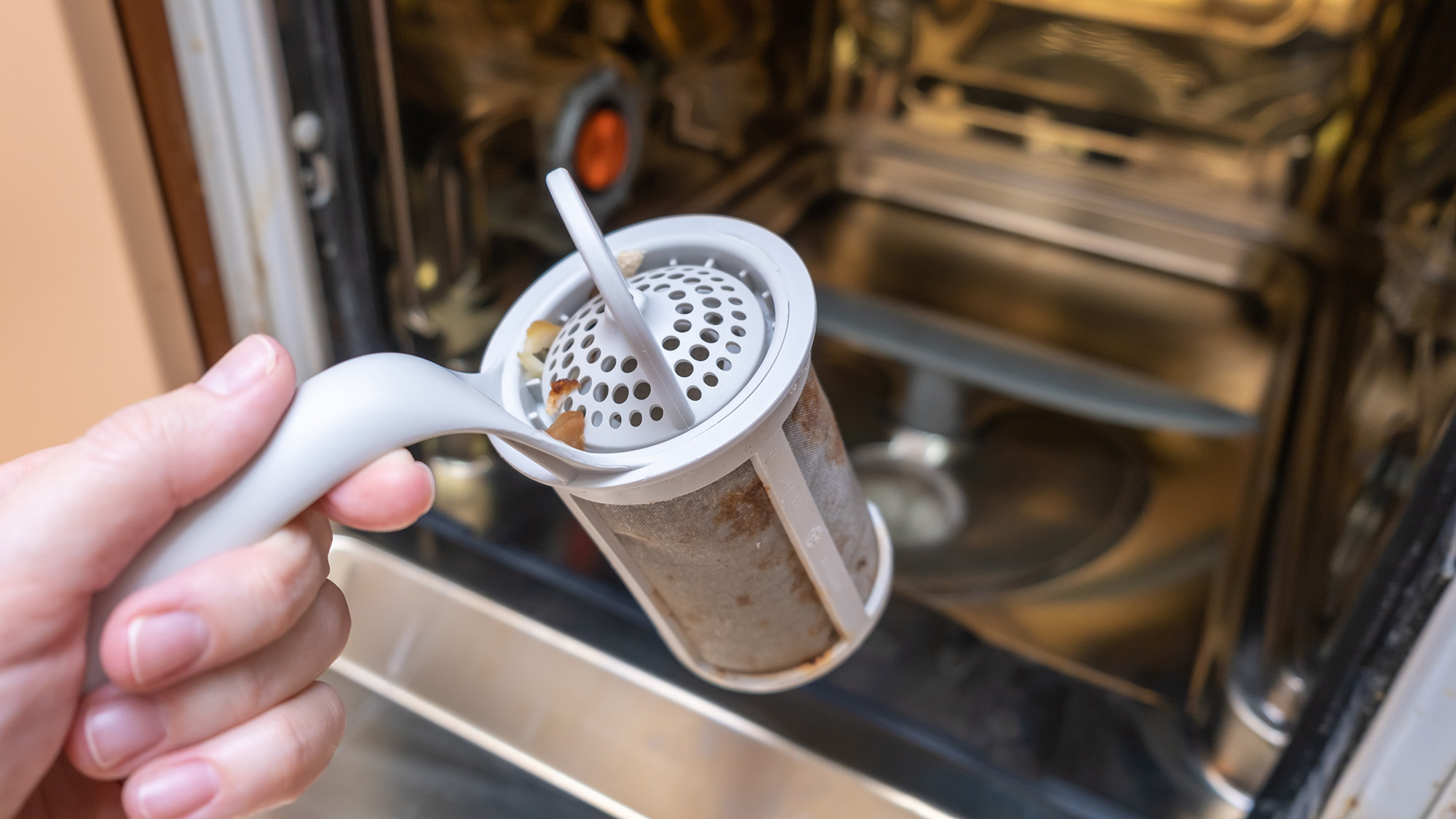
Similarly, make sure your filter isn’t clogged with trapped food particles.
“Other warning signs of this include a bad smell coming from the machine and gurgling noises. ,” states Palmer-Smith, Appliance repair expert at Domestic & General. “To fix this, remove the filter and empty any trapped food before scrubbing with a toothbrush. Finally, give it a quick rinse to remove every last bit of dirt and grime.”
Like any kitchen appliance, it’s important to stay on top of regular cleaning and maintenance to get the most out of your dishwasher. “Clean the filter about once a month,” adds Hood. “This helps prevent clogs that could cause overflow, keeps food particles from ending up back on your dishes, and reduces the chance of unpleasant odors.”
4. You have hard water
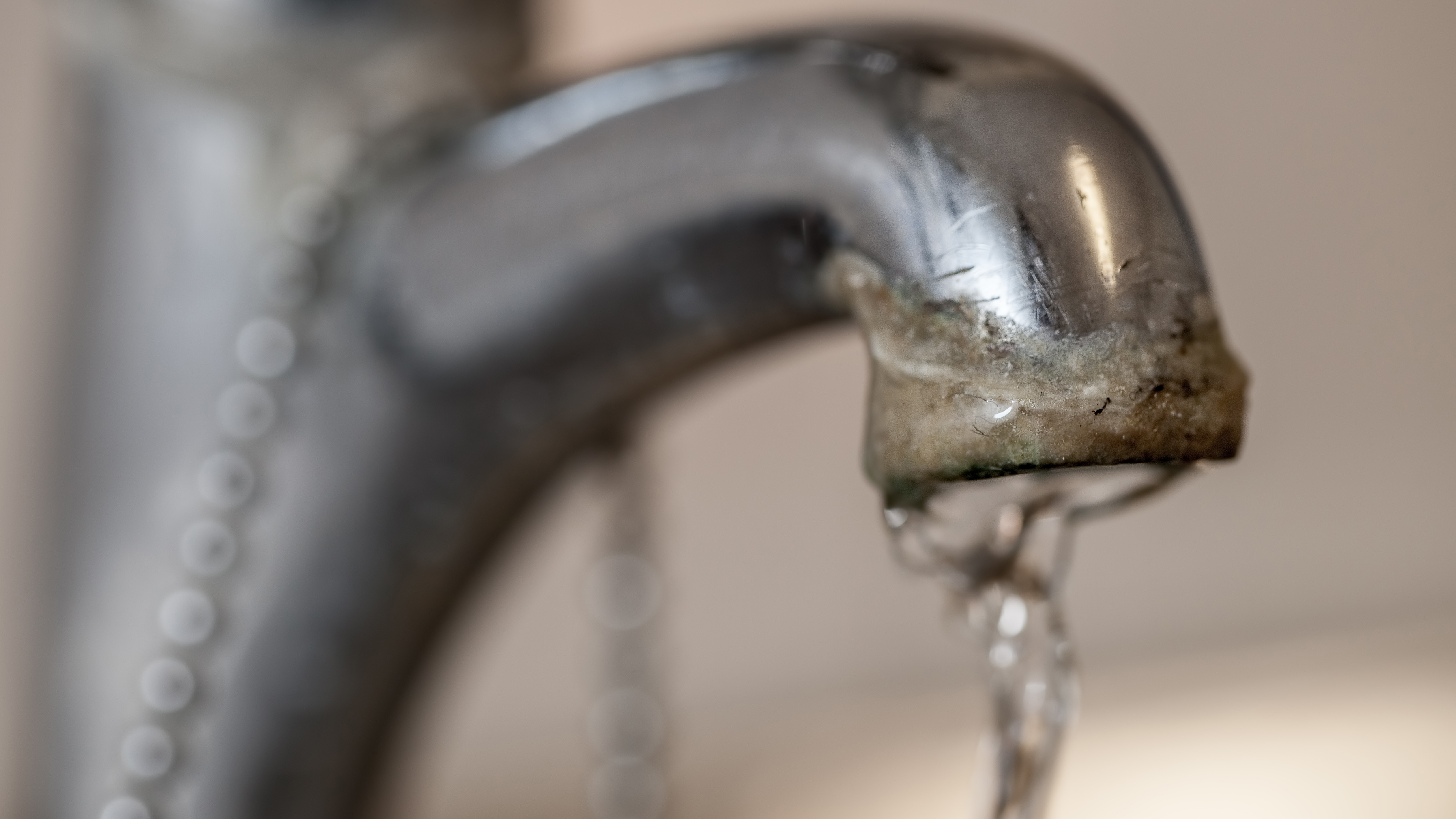
If you live in a hard water area, this can often prevent your dishes from getting a spotless clean. What’s more, hard water deposits will build up as limescale inside dishwashers, causing them to underperform.
“If you discover you have hard water, adding a water softener is the best solution, and it can significantly improve how clean and clear your dishes look,” suggests Hood.
“A more budget-friendly way to address hard water when using a dishwasher is to choose a model with a built-in water softener, such as Bosch or Miele dishwashers. While these may not completely eliminate the problem, they can considerably enhance cleaning performance compared to dishwashers without an integrated softener.”
To avoid potential issues, check out 5 ways hard water is damaging your home — and how to fix it.
5. You rinse plates before putting into dishwasher
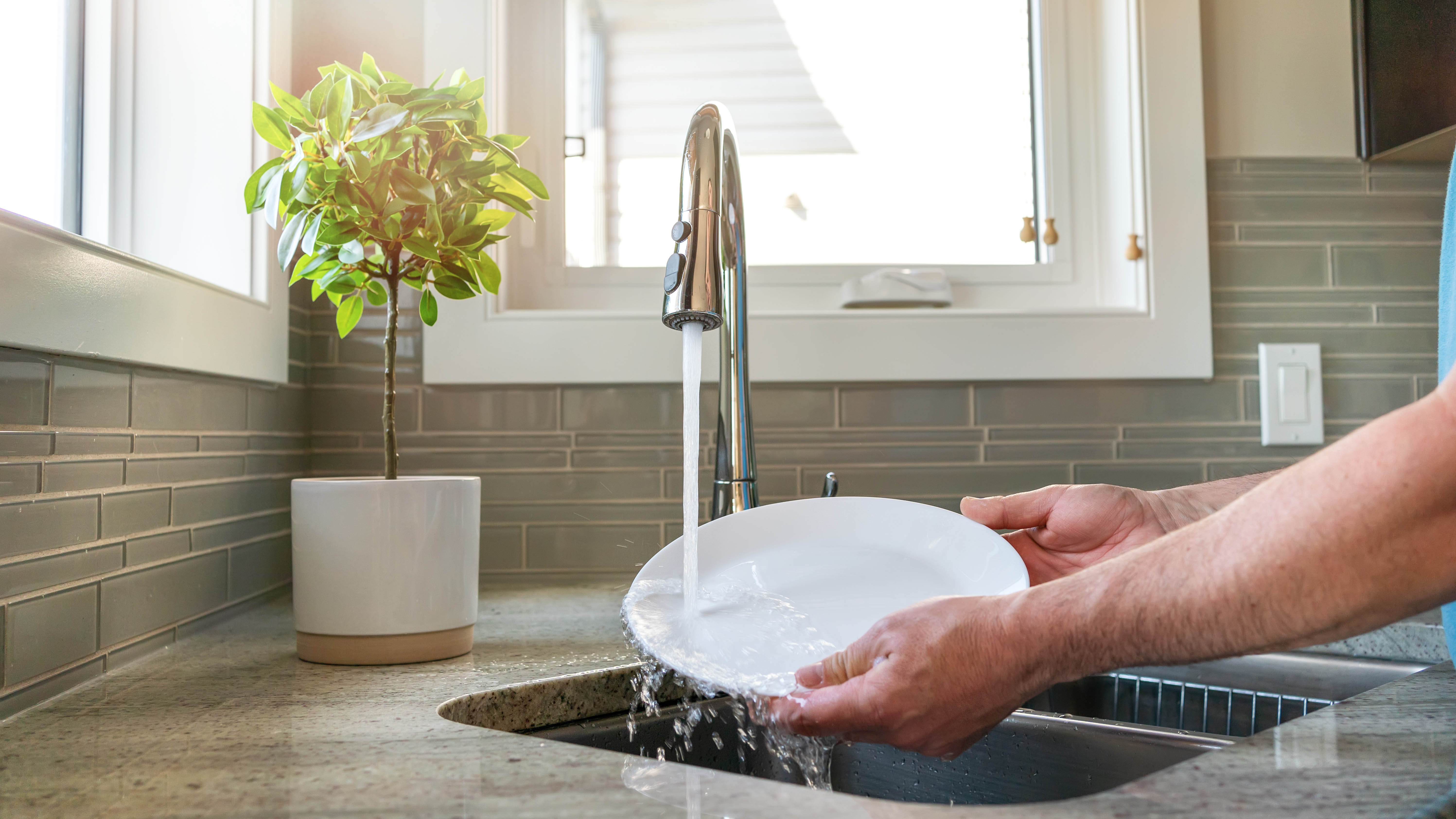
This is often a topic of debate, but should you rinse your dishes before putting them into the dishwasher?
According to experts, this is a common mistake that we often make, and could actually be making your dishes dirty. “If your dishes have lots of leftover food, you’ll need to scrape the excess away before loading,” states Palmer-Smith.
“However, it is not necessary to give them a thorough rinse. In fact, dishwasher detergent actually needs some food waste to clean effectively as this gives it something to cling onto. If you usually rinse your dishes before loading, try avoiding this and you may notice a visible improvement in the cleanliness of your dishes and cutlery.”
For more top tips, check out how often you should clean your dishwasher — experts reveal all you need to know.
More from Tom's Guide
- 5 things I wish I’d known before buying a dishwasher
- You asked: When is it time to replace a dishwasher?
- Plus, 7 ways to improve your dishwasher's performance

As the Homes Content Editor, Cynthia Lawrence covers all things homes, interior decorating, and garden-related. She has a wealth of editorial experience testing the latest, ‘must-have’ home appliances, writing buying guides and the handy ‘how to’ features.
Her work has been published in various titles including, T3, Top Ten Reviews, Ideal Home, Real Homes, Livingetc. and House Beautiful, amongst many.
With a rather unhealthy obsession for all things homes and interiors, she also has an interior design blog for style inspiration and savvy storage solutions (get rid of that clutter!). When she’s not testing cool products, she’ll be searching online for more decor ideas to spruce up her family home or looking for a great bargain!
You must confirm your public display name before commenting
Please logout and then login again, you will then be prompted to enter your display name.
 Club Benefits
Club Benefits





